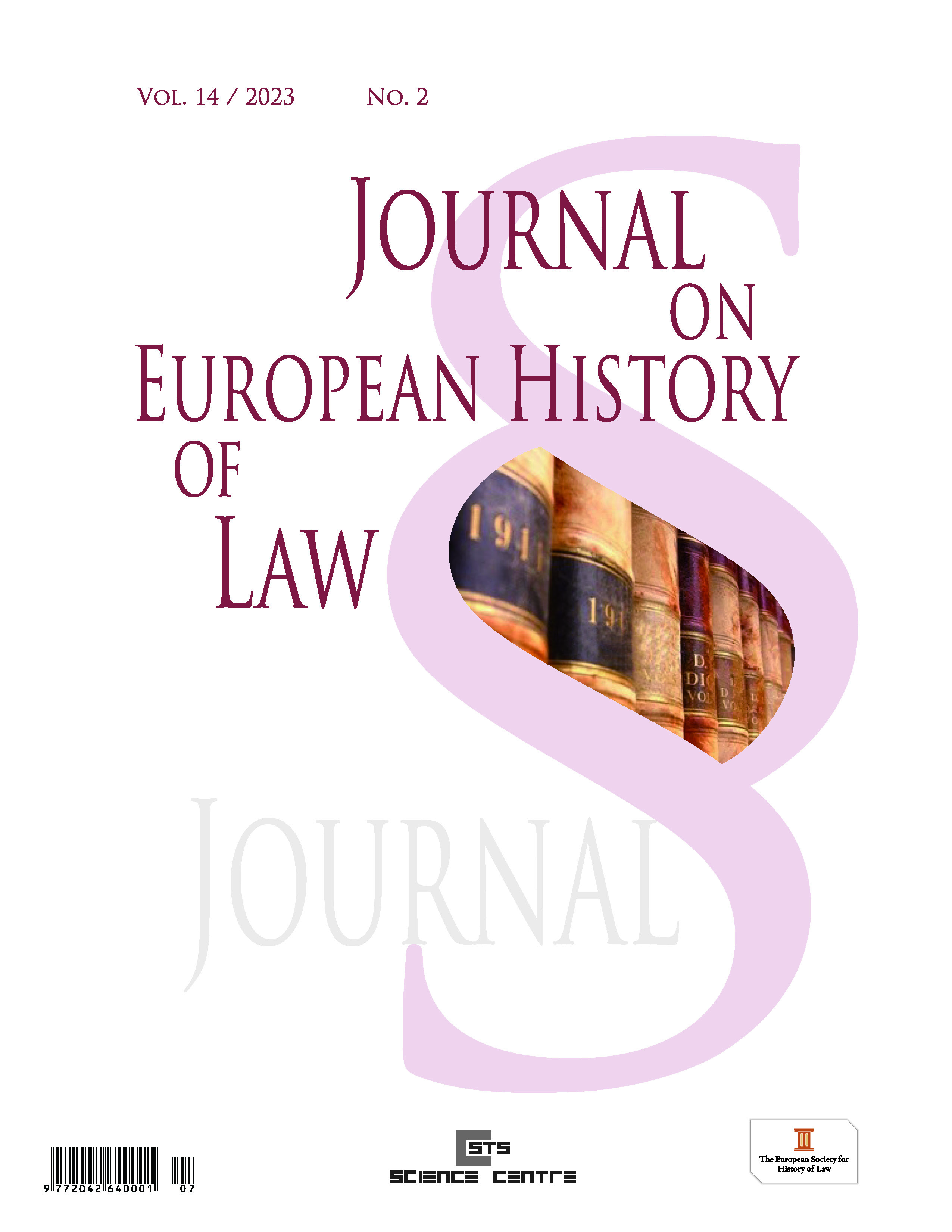Conflicts, Compromises and Professionalization. The Case of Hungarian Trainee Lawyers in the late 19th Century
Conflicts, Compromises and Professionalization. The Case of Hungarian Trainee Lawyers in the late 19th Century
Author(s): Viktor PappSubject(s): History, Law, Constitution, Jurisprudence, 19th Century
Published by: STS Science Centre Ltd
Keywords: lawyer; legal profession; professionalization; Budapest Bar; trainee lawyer; law clerk; concept of social closure; social history; the code of conduct for lawyers;
Summary/Abstract: This paper explores the question of how the relationship between trainee lawyers and lawyers has changed in the late 19th and early 20th centuries. The main question of this study is what arguments and what professional solutions the trainee lawyers have used to improve their position in relation to lawyers. The presentation of the problem will be based on articles published in the legal press. The relationship between the two groups is important because, in addition to lawyers, trainee lawyers also have gained important functions through the lawyer’s code of conduct introduced in 1874, which have further increased the already fierce competition in the labour market for lawyers. Another significant issue is the extent of conflictual discourse between lawyers and trainee lawyers. By the beginning of the 20th century, trainee lawyers had raised awareness of the inevitability of generational change within the profession by founding several professional associations. The study aims to illustrate, through concrete professional debates, the effectiveness with which trainee lawyers have been able to assert their professional and financial interests against lawyers. The final part of the paper deals with cases where lawyers and trainee lawyers have successfully allied themselves against government and state actors. The results of the research will show what professional mechanism and argumentation tools were in the hands of the legal professions, and when they were used during the process of advocacy. The results of the research will also fit well with the professionalization paradigm, as the research of the social history of lawyers helps to understand the transformation of the intellectual professions and of the middle class. The findings of the research, on the other hand, will be closely related to social closure theory, as the rivalry between lawyers and trainee lawyers sheds light on the mechanisms that influenced the practice of social closure in the 19th century.
Journal: Journal on European History of Law
- Issue Year: 14/2023
- Issue No: 2
- Page Range: 113-120
- Page Count: 8
- Language: English
- Content File-PDF

